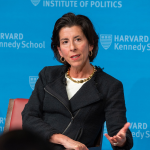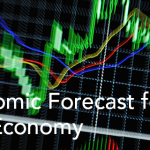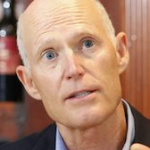Can Trump fire Fed chairman? This question has stirred considerable debate as President Trump has had a complex relationship with Jerome Powell, the Federal Reserve chair he appointed in 2017. With ongoing tensions related to interest rate policies and Trump’s economic agenda, many wonder what implications the president’s actions might have on the Federal Reserve’s independence. The potential for market reaction to Powell’s removal ignites anxiety among investors who fear a disruption in monetary policy. Furthermore, any significant change in the leadership at the Fed could dramatically impact the economy, raising concerns about inflation and economic growth.
The discussion around the potential to dismiss the Federal Reserve chief raises important questions about the dynamics of executive power in the U.S. government. As President Trump has hinted at the possibility of removing Jerome Powell from his position, the implications for central banking independence come into sharp focus. This issue not only concerns the legal standing of such a decision but also the broader economic impact it could have on markets and confidence in monetary policy. With the intricate relationship between the presidency and the Fed in question, analysts are keenly observing how these developments might reshape the fiscal landscape and what that means for future administrations.
Understanding Trump’s Influence Over the Federal Reserve
The relationship between President Trump and Federal Reserve Chairman Jerome Powell has been fraught with tension, primarily revolving around different economic philosophies. Trump, who nominated Powell to lead the Fed, has often publicly criticized him for not acting aggressively enough on interest rates, arguing that doing so could strengthen the economy. This lack of harmony raises the question: Can Trump fire the Fed chairman, and if so, what implications would such a move have on market stability? Understanding this dynamic is crucial as the Federal Reserve operates under a framework that is intended to ensure its independence from political pressures.
The Federal Reserve, established in 1913, is designed to make judgments free from political influence, particularly when it comes to monetary policy decisions aimed at maintaining economic stability. Any move by President Trump to dismiss Powell would likely prompt significant market reactions, as investors fear that such actions could undermine the central bank’s credibility. Analysts are particularly concerned that a dismissal could be interpreted as a signal towards a more lenient monetary policy, sparking fears of inflation and economic volatility. Therefore, while the president may have certain powers, acting against the Fed’s head could have unintended consequences that resonate across financial sectors.
The Legal Landscape of Dismissing the Fed Chair
The legal framework surrounding the termination of a Federal Reserve chairman is complex and stems from various interpretations of the Federal Reserve Act and subsequent amendments. While it is established that governors can be removed for cause, the interpretation of whether the same applies to the chair has been debated. Legal scholars suggest that the original act’s protections may not extend to the chair’s four-year term, potentially allowing for a presidential dismissal. However, constitutional arguments also support the idea that such an action could violate the independence that the Federal Reserve was intended to maintain.
In the event that President Trump contemplates removing Powell, the legal ramifications could lead to volatile market responses before the courts weigh in on the matter. A Supreme Court ruling could redefine the boundaries of executive power concerning independent agencies, especially amidst a climate where judicial interpretations lean towards reducing protections for agency heads. Analysts caution that any perceived threat to the Fed’s permanence could trigger immediate reactions from investors, wary of the impacts on monetary policy and ultimately the broader economy.
The Economic Implications of a Fed Chair Ouster
Removing Jerome Powell from his position could have profound economic implications that extend well beyond immediate market reactions. If Trump were to provoke a dismissal, markets would likely interpret this as a signal that the administration is willing to prioritize short-term economic growth over controlling inflation. Such a shift could jeopardize the Fed’s longstanding role as an arbitrator of economic stability, leading to heightened expectations regarding inflation rates and long-term interest rates escalating as a result.
Moreover, historical precedents suggest that the impact of a Fed chair’s removal is not limited to surface-level volatility. The centralized banking model is structured to withstand political pressures; however, any direct intervention by the president might complicate the Fed’s ability to enforce policies designed to combat inflation. This could lead to increased long-term costs for borrowing, ultimately affecting consumer spending, business investments, and the overall economy. The apprehensions among economists and financial analysts highlight the delicate balance that exists in the relationship between political leadership and economic governance.
Market Reactions to Federal Reserve Leadership Changes
Market response to shifts in Federal Reserve leadership often reflects broader anxieties about monetary policy direction. The prospect of President Trump firing Jerome Powell has produced considerable unease among investors who fear that such an action might result in a more accommodative stance that could eventually threaten inflation stability. Typically, when the Fed chair’s policies appear to align with a government’s fiscal ambitions, markets respond positively in the short term but often at the cost of longer-term inflationary pressures.
Historically, transitions in leadership within the Federal Reserve have triggered fluctuations in various market indices and interest rates. Investors tend to scrutinize the Fed’s rhetoric closely during such transitions, as even minor shifts in tone can lead to significant changes in market sentiment. Thus, should Trump act on his rumored intentions to replace Powell, analysts expect initial volatility as traders react to the uncertainty surrounding the new chair’s policy preferences and their implications for economic growth.
Analyzing the Independence of the Federal Reserve
The independence of the Federal Reserve has been a cornerstone of its ability to administer monetary policy effectively. This independence is crucial for maintaining the public’s trust in the Fed’s commitment to stabilize prices and foster economic growth without political interference. The ongoing dynamics of Trump’s administration highlighting potential attempts to dismiss Jerome Powell create an unsettling scenario for the market, reflecting fears that such actions could erode this independence.
Analysts argue that the credibility of the Federal Reserve relies on its ability to operate free of political motivations. If the Trump administration or any future president undermines this independence through direct intervention, it could lead to a paradigm shift in how monetary policy responds to economic challenges. The Fed’s capacity to manage inflation and economic growth effectively may be compromised, resulting in adverse long-term repercussions for the economy. As the administration navigates these waters, the significance of preserving the Fed’s independence has never been clearer.
The Role of the Supreme Court in Fed Chair Dismissals
The intersection of executive authority and regulatory agency independence raises significant questions for the Supreme Court, particularly regarding the potential for a president to dismiss the Fed chairman. Recent rulings may signal a shift in how the judiciary perceives the autonomy of independent agencies like the Federal Reserve. Should the Supreme Court move to reassess prior rulings that have traditionally upheld the independence of such agencies, this could dramatically alter the feasibility of dismissing major figures like Jerome Powell.
Legal experts suggest that any ruling that favors presidential authority in this context could set a precedent for future administrations to exert more influence over the Federal Reserve. This might encourage politically motivated actions that fundamentally challenge the central bank’s operational integrity. Market analysts observe that the implications of such judicial rulings could extend well beyond the immediate context of Powell’s tenure, potentially reshaping the landscape of American economic governance for years to come.
Potential Successors to Jerome Powell and Market Sentiment
Should Jerome Powell be removed, the identity of his successor would be consequential, influencing both market perceptions and economic forecasts. Investors often regard continuity in Fed leadership as key to maintaining stability in financial markets. A new chair could either reinforce or disrupt existing monetary policies; hence, market participants would closely analyze the potential for a successor to embrace either a dovish or hawkish stance. This unpredictability could heighten market volatility, particularly if the appointment reflects a departure from Powell’s policy approach.
Moreover, a new chair could trigger reassessments of the Federal Reserve’s market strategies, especially in terms of interest rate management and inflation targets. Investors would likely gauge the new chair’s previous experiences and viewpoints concerning monetary policy flexibly. The anticipation of such shifts could lead to a fluctuation in stock prices and interest rates preempting the formal announcement of a new appointment. Ultimately, market sentiment will hinge not just on who succeeds Powell, but also on the overarching implications for economic policy moving forward.
The Political Dynamics of Monetary Policy
The political dynamics that influence monetary policy are complex, particularly when the administration and the Federal Reserve chair appear to clash. Trump’s critiques of Jerome Powell showcase a broader narrative of how political leaders might seek to shape economic outcomes through the central bank. Historically, presidents have navigated the tensions between fostering growth and maintaining regulatory independence, further complicating the administration’s relationship with the Federal Reserve.
Political commentary often highlights how monetary policy decisions can serve as tools for political leverage, especially during electoral cycles. Should Trump pursue the dismissal of Powell, it might embolden future administrations to make similar moves, which could erode the independence that the Federal Reserve requires to operate credibly. The implications of politicizing the Fed’s role could influence long-term economic strategies and contribute to fluctuations that could destabilize the markets significantly.
Historical Context: Fed Chairs and Economic Policy
The historical context of Fed leadership provides essential insights into the dynamics between a president and the central bank. Over the years, various Fed chairs have faced political pressures that have shaped their decisions in response to economic challenges. For instance, the tenure of former chairman Alan Greenspan was marked by a close alignment with political leadership, but the subsequent chairs have emphasized the necessity of maintaining independence in monetary policy to ensure effective economic stewardship.
The legacy of previous Fed chairs underscores the consequences of a administration’s intervention in the agency’s operations. A trajectory toward politicization could fundamentally alter how the Fed responds to economic crises, affecting everything from inflation rates to employment levels. As analysts draw parallels between past events and President Trump’s current approach to Powell, it becomes clearer that the historical implications of such dynamics will resonate through future economic policies.
Frequently Asked Questions
Can Trump fire Fed chairman Jerome Powell, and what would be the implications?
Yes, President Trump has the authority to attempt to fire Fed Chairman Jerome Powell. However, such an action could have significant implications for the Federal Reserve’s independence, potentially leading to market volatility and affecting investor trust in monetary policy.
How does the Trump Powell relationship affect the Federal Reserve’s independence?
The contentious relationship between President Trump and Chairman Powell raises concerns about the Federal Reserve’s independence. Trump’s public criticism of Powell and suggestions to fire him could undermine the perception of the Fed as an independent institution, which is crucial for maintaining market confidence.
What would be the market reaction to a potential Powell removal by Trump?
If Trump were to remove Powell, the market reaction could be substantial. Investors may fear a shift towards looser monetary policy, which could lead to increased inflation expectations and higher long-term interest rates, adversely affecting economic stability.
What is the economic impact if the Fed chair is removed by Trump?
The economic impact of removing the Federal Reserve Chairman could be severe. Such a move may lead to uncertainty in monetary policy, increase inflation expectations, and ultimately destabilize financial markets, impacting businesses and consumers alike.
What legal grounds exist for Trump to oust Powell from the Federal Reserve?
Legally, the president may only remove the Fed chairman for cause, but the interpretation of ’cause’ can be subjective. Recent Supreme Court decisions regarding executive power could influence how this issue is viewed, but any attempt to remove Powell would likely face significant legal and market challenges.
How do analysts view President Trump’s threats to fire Powell in terms of Fed policy?
Analysts generally believe that Trump’s threats to fire Powell could undermine the credibility of Fed policy. By indicating a desire to exert political influence over monetary policy, it could lead to a loss of confidence in the Fed’s role as an inflation fighter and central bank.
Would replacing Powell calm Wall Street’s fears about monetary policy?
Replacing Powell may not necessarily calm Wall Street’s fears. The very act of removal could signal an intention to pursue a more accommodative monetary policy, thereby heightening concerns about inflation and economic stability, regardless of Powell’s successor’s credentials.
What is the significance of the Federal Reserve’s independence in light of the Trump Powell dynamic?
The independence of the Federal Reserve is critical for effective monetary policy. The dynamic between Trump and Powell illustrates tensions that could threaten this independence, affecting how monetary policy decisions are made and perceived by the public and investors.
| Key Point | Details |
|---|---|
| Trump’s Relationship with Powell | Trump has criticized Powell for not being aggressive enough in cutting interest rates to boost the economy. |
| Presidential Authority | The law is unclear on whether a president can fire the Fed chair, with debates around ‘for cause’ protections. |
| Market Concerns | Removing Powell could undermine the Fed’s independence and trigger negative market reactions due to fears of inflation. |
| Impact of Supreme Court Decisions | Recent Supreme Court rulings may affect the legal underpinning of ‘for cause’ protections. |
| Potential Successors | Markets may view the removal of Powell as a shift to a looser monetary policy, regardless of the successor’s credentials. |
Summary
Can Trump fire Fed chairman? The topic of whether former President Trump can dismiss Federal Reserve Chairman Jerome Powell is complex and multifaceted. While legally it seems possible, significant market and economic implications create a strong deterrent against such a decision. Trump’s past criticisms of Powell for not implementing aggressive monetary policies reflect his complicated relationship with the Fed, alluding to deeper concerns regarding the independence of financial institutions and their role in economic stability. Ultimately, any attempt to replace Powell could lead to substantial uncertainty in the markets, underscoring the importance of the Fed’s longstanding independence.






